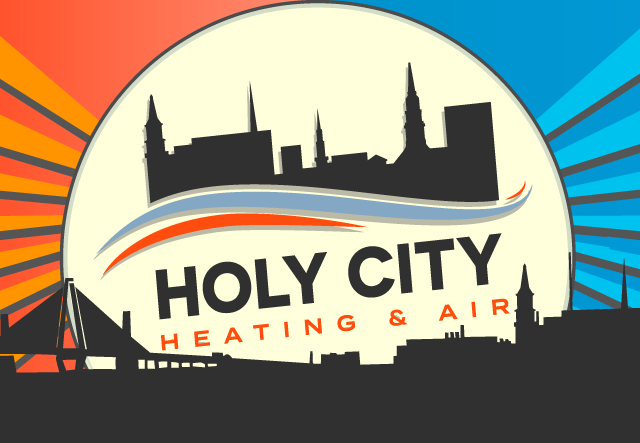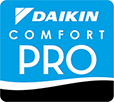Heat pump replacement is an essential consideration for maintaining a comfortable and efficient home. Over time, heat pumps can lose their efficiency, especially if they have been in use for many years. Deterioration in performance not only affects comfort but can also lead to frequent and costly repairs.
Signs It’s Time to Replace Your Heat Pump
Age of the Heat Pump
One of the most telling signs that you need a heat pump replacement is the age of your current system. Heat pumps typically have a lifespan of about 10 to 15 years. As they age, their efficiency decreases, leading to higher energy bills and reduced performance. If your heat pump is approaching or has surpassed this age range, it might be time to consider a replacement.
Older heat pumps are more likely to break down and require frequent repairs. Even with regular maintenance, parts wear out, and the system can no longer operate at its optimal efficiency. By replacing an old heat pump, you can ensure more reliable performance and avoid the inconvenience and cost of constant fixes.
Frequent Repairs and Breakdowns
Another clear indicator that your heat pump needs to be replaced is the frequency of repairs and breakdowns. If you find yourself calling for repairs multiple times a year, it’s a sign that your system is struggling to keep up. Frequent repairs not only drain your wallet but also signal that the system is nearing the end of its useful life.
Breakdowns often happen at the most inconvenient times, leaving you without heating or cooling when you need it most. A failing heat pump can cause discomfort and stress. Investing in a new system can provide peace of mind and ensure your home remains comfortable year-round.
Benefits of Upgrading to a New Heat Pump
Improved Efficiency and Performance
Upgrading to a new heat pump can significantly improve the efficiency and performance of your home’s heating and cooling system. Modern heat pumps are designed with advanced technology that allows them to consume less energy while providing better heating and cooling. This means your home can stay comfortable without the high energy costs.
Newer heat pumps also feature improved performance metrics, ensuring consistent temperature control throughout your home. This means less fluctuation in indoor climates and more consistent comfort for you and your family. A more efficient system also reduces strain on components, potentially extending the system’s lifespan.
Enhanced Comfort and Air Quality
Replacing your old heat pump can also enhance the overall comfort and air quality of your home. Newer models are better at maintaining consistent temperatures, eliminating hot and cold spots, and providing an even distribution of air. This results in a more comfortable living environment.
Furthermore, modern heat pumps often come with advanced filtration systems that improve indoor air quality. These filters can remove allergens, dust, and other particles from the air, making it healthier to breathe. Better air quality can reduce allergy symptoms and promote overall health. Upgrading to a new heat pump ensures a cleaner, more comfortable home for you and your family.
Economic Advantages of Heat Pump Replacement
Lower Energy Bills
One of the most immediate benefits of a heat pump replacement is the reduction in energy bills. Newer heat pumps are far more energy-efficient than older models. They are designed to use less electricity while providing the same if not better, heating and cooling. This means you can maintain a comfortable home environment without worrying about high energy costs. Lower energy consumption is not only good for your wallet but also better for the environment, as it reduces your overall energy footprint.
Increased Property Value
Replacing your heat pump can also boost your property’s value. Homebuyers often look for homes with updated, efficient systems. A new, high-efficiency heat pump is a significant selling point. It shows that the home has been well-maintained and requires less immediate investment in HVAC systems. This can make your home more attractive to potential buyers and can often lead to a higher selling price. Investing in a new heat pump makes financial sense whether you’re planning to stay in your home for years or thinking about selling in the near future.
Why Professional Installation Is Crucial
Expertise and Correct Sizing
Professional installation of your new heat pump is vital for ensuring optimal performance. Our professionals have the training and experience needed to install heat pumps correctly. They can properly size the unit to match your home’s specific needs, which is crucial for efficient operation. An incorrectly sized heat pump can lead to poor performance and higher energy bills. Our technicians ensure that your new heat pump is the right fit for your home, leading to better efficiency and comfort.
Ensuring Warranty Compliance
When you have your heat pump installed by our professionals, you ensure that the installation complies with the manufacturer’s warranty requirements. Many warranties require professional installation to be valid. Improper installation can void the warranty, leaving you to cover any repair costs on your own. Our technicians follow the proper procedures and guidelines, ensuring that your warranty remains intact. This provides peace of mind, knowing that you are protected if any issues arise with your new heat pump.
Conclusion
Recognizing the signs that it’s time to replace your heat pump can save you from frequent repairs and high energy bills. Upgrading to a new heat pump brings numerous benefits, including improved efficiency and enhanced comfort. Economically, a new heat pump reduces energy costs and increases your property’s value. Professional installation is essential for correct sizing and maintaining warranty compliance.
Investing in a new heat pump is a decision that can lead to long-term savings and improved home comfort. For expert heat pump replacement in Isle of Palms, contact Holy City Heating & Air, LLC. Our experienced technicians are committed to providing top-quality service to meet your heating and cooling needs.






